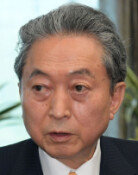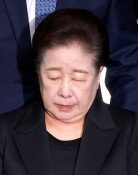Six principles of U.S. policy on North Korea
Six principles of U.S. policy on North Korea
Posted March. 12, 2001 14:33,
U.S. State Department spokesman Richard Boucher published Friday six principles of Washington`s policy line on North Korea. In a regular press briefing shortly after President Kim Dae-Jung`s departure for Seoul following his trip to Chicago, the spokesman addressed reporters` questions on Korea-related issues.
Sources in Washington said the media raised considerable concerns over the Korean question, a reflection of their view that the summit between President Kim and President George W. Bush had not gone smoothly. The reporters showed particular concern as to whether there were differences of opinion between President Bush and Secretary of State Colin Powell on Washington`s North Korea policy, whether President Kim was disappointed at the outcome of his talks with Bush, and what was meant by Powell`s statement calling for a review of the 1994 Agreed Framework.
The six principles of U.S. policy on the North were a summary of the sporadic policy announcements by Secretary Powell and other Bush team members in the past, yet Boucher`s outline of the policy direction may have been intended to underline the fact that the new U.S. government was dealing with Pyongyang based on firm principles.
The spokesman said there were no disagreements between Bush and Powell on American policy on North Korea and stressed that Washington firmly supported the Seoul government`s stance. Asked to comment on a Washington Post report that the Korean president had expressed disappointment with the results of his summit with Bush, Boucher answered that he had not heard any such statements from Kim. The spokesman emphasized that talks between Kim, Powell and Bush were ``realistic,`` that they had no illusions about the North Korean regime and that they reached a consensus on the promotion of a joint North Korea policy.
However, it was noted that the press briefing, a follow-up to the Kim-Bush summit, underscored the necessity of Washington`s consultations with Seoul and Tokyo, rather than Kim`s initiatives for inter-Korean reconciliation. A diplomatic source said that the U.S. stance may have reflected the Bush administration`s view that the North Korean question was not merely an inter-Korean matter but an international issue closely connected to security in Northeast Asia. Moreover, as the National Missile Defense (NMD) problem has some connection with the inter-Korean question, the Bush administration may have felt an acute need for coordination with its allies on the formulation of its North Korea policy.
Han Ki-Heung eligius@donga.com







